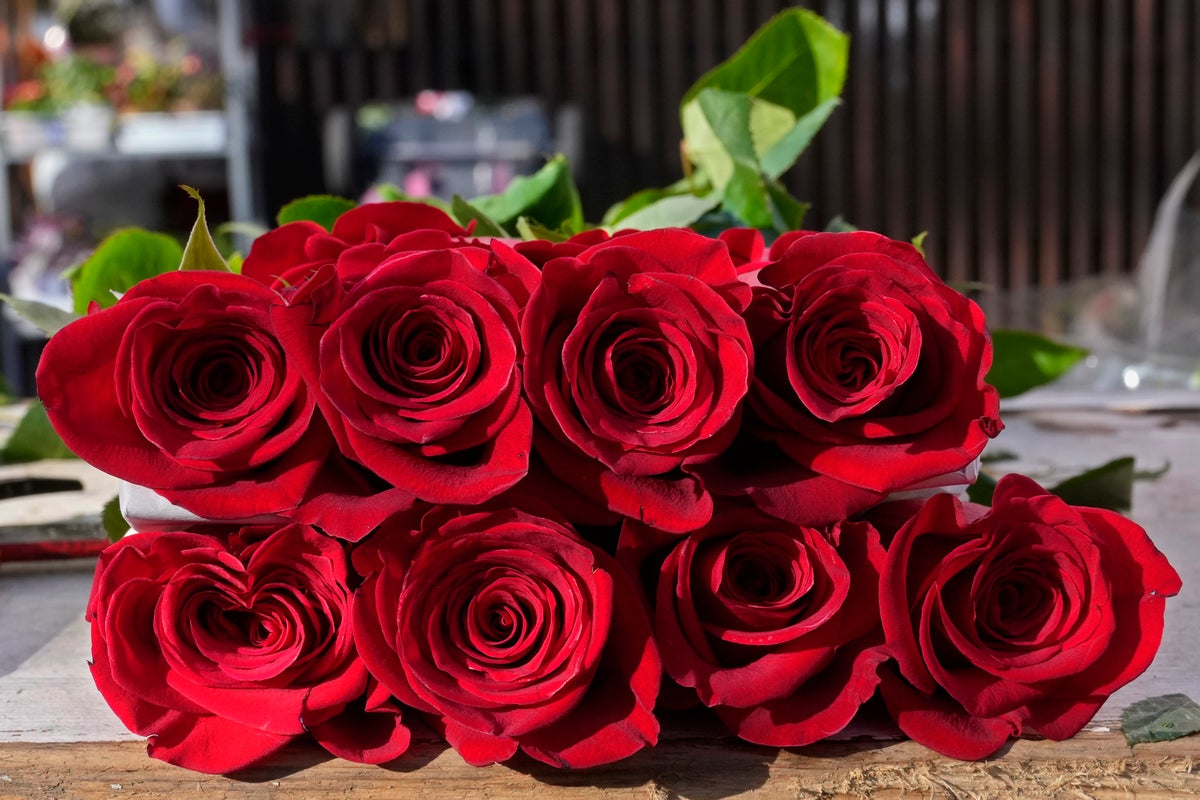
Your support helps us to tell the story
From reproductive rights to climate change to Big Tech, The Independent is on the ground when the story is developing. Whether it’s investigating the financials of Elon Musk’s pro-Trump PAC or producing our latest documentary, ‘The A Word’, which shines a light on the American women fighting for reproductive rights, we know how important it is to parse out the facts from the messaging.
At such a critical moment in US history, we need reporters on the ground. Your donation allows us to keep sending journalists to speak to both sides of the story.
The Independent is trusted by Americans across the entire political spectrum. And unlike many other quality news outlets, we choose not to lock Americans out of our reporting and analysis with paywalls. We believe quality journalism should be available to everyone, paid for by those who can afford it.
Your support makes all the difference.
Those Valentine flowers might come with a bit more than vivid colors and a nice scent. France’s oldest consumer group is reminding people that any imported cut flower likely also contains pesticides — even those banned in Europe.
The flower industry points to studies saying that cut flowers pose no health risk to consumers, though some advocates say there hasn’t been enough study on whether the contamination could endanger florists who touch them daily.
Paris-based UFC-Que Choisir chose Valentine’s Day to release results of what it said were tests of roses, gerberas and chrysanthemums sold at florists, shops, supermarkets and online. It said it found potentially harmful residues of pesticides in every bouquet.
In the Netherlands — which produces roughly 60% of the global trade — a similar study came to similar conclusions.
Unlike for produce that is consumed, regulations in Europe on cut flowers place no limits on the level of pesticides, UFC-Que Choisir notes.
The group is calling on authorities to introduce maximum levels of pesticide residues, a ban on imports of flowers treated with pesticides that are banned in Europe, and mandatory labelling of the origin and treatment of flowers.
The group bought 15 bouquets of flowers. In each one, between seven and up to 46 different pesticide residues were identified, of which an average of almost 12 were deemed hazardous because they are possibly carcinogenic or endocrine disrupting, the group said. Residues of pesticides banned in the EU were found in two-thirds of the bouquets.
Valhor, the French inter-trade organization for horticulture, floristry and landscaping, however pointed to a study in Germany that concluded there were no risks for consumers who buy cut flowers.
“The entire industry is compliant and transparent,” it said. “With regard to European and particularly French flower production, the industry complies with a strict and demanding legislative and regulatory framework for the use of plant protection products.»
Valhor added that it promotes health and safety practices in the flower industry workplace to limit exposure, including the use of gloves.
Pierre Lebailly, a pesticide expert at University of Caen, regrets that there have been only a small number of studies on the impact of pesticides on florists’ health. Among those, a study in Belgium showed that pesticides could be absorbed through the skin when handling contaminated flowers, with a potential damaging effect on health.
Contamination goes beyond France
The Dutch branch of the Pesticide Action Network — a network of European NGOs promoting sustainable alternatives to pesticides —- tested 13 bouquets of tulips, roses, and mixed bouquets in a certified laboratory. Residues of pesticides were found in all bouquets.
According to PAN, Valentine’s roses are typically sourced from Dutch growers with greenhouses or fields in Kenya and Ethiopia.
A total of 71 different active substances were found in the bouquets, of which 28 are banned in the EU. The study found that, on average, each bouquet contained 25 toxic substances.

